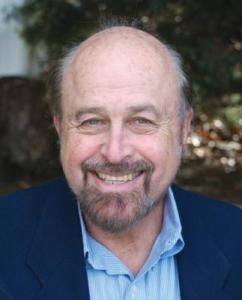James Fadiman is a psychologist, writer and a recognized authority on psychedelics and microdosing. He earned his bachelor’s in social relations from Harvard in 1960. He also earned his master’s and doctorate degrees in psychology from Stanford in 1962 and 1965, respectively. Also, he lectured at Stanford from 1970 to 1978. Also, Fadiman has served as adjunct faculty at Sofia University for the past 43 years and has been a senior research fellow there since 2012.
Introduction to Psychedelics
Fadiman first experimented with psychedelics when he was in Paris in 1961. His friend and undergraduate advisor at Harvard, Ram Dass (known at the time as Richard Alpert) introduced him to either LSD or psilocybin mushrooms, as the story goes. In 1962, Fadiman served as Stewart Brand’s guide on his first LSD trip. This took place at Myron Stolaroff’s International Foundation for Advanced Study in Menlo Park, CA.
It was at Stolaroff’s foundation that Fadiman was part of a team that began the psychedelics in problem solving experiment pilot study. The goal was to find out if and how much psychoactive substances used in a supportive setting could improve problem-solving skills. The study participants included professionals such as mathematicians, engineers, and managers. However, the project ended abruptly in 1966 when the US Food and Drug Administration (FDA) enacted laws requiring independent review by the FDA for all human experiments.
Sofia University
In 1975, Fadiman co-founded the Institute of Transpersonal Psychology along with Robert Frager. The institute was formed to teach psychology with a religious/spiritual orientation. In 2012, the name was changed to Sofia University. The school offers undergraduate and graduate programs in three main schools; the School of Undergraduate Studies, the Graduate School of Transpersonal Studies, and the Graduate School of Clinical & Spiritual Psychology. In 1976, Fadiman and Frager published one of the first psychology textbooks that incorporated Eastern personality theories with Western approaches to psychology. “Personality and Personal Growth” is now in its 7th edition.
Author of The Psychedelic Explorer’s Guide
As an author, Fadiman is most well-known for his ground-breaking 2011 book The Psychedelic Explorer’s Guide: Safe, Therapeutic, and Sacred Journeys. Through the book, Fadiman is the first to introduce the concept of psychedelic microdosing to a large audience. He outlines microdosing protocols and best practices for LSD and psilocybin, among others. He also discusses the value of psychedelic drugs for self-discovery and healing.
Other sections of the book cover the importance of having a guide during trips, how to be a good guide for someone else, a review of the research, and dispelling myths about psychedelics. Fadiman breaks up microdosing into three doses based on the goals of the user; high doses are for those seeking a spiritual experience, moderate doses for therapeutic use, and low doses for problem-solving.
Fadiman says he first latched onto the concept of microdosing after a conversation with his friend Robert Forte. Forte told him Albert Hofmann once said the effects of very low doses of LSD had not been studied. Hofmann microdosed himself and thought it helped him think better. From this, Fadiman says, “I had devoted some large part of my career to research with full doses, and like every other high-dose researcher, had ignored this low-dose area. One of the striking differences is that microdosing, produces none of the classic psychedelic visual effects nor does it lead to major therapeutic breakthroughs or mystical experiences. It seems, however, to improve general health.”
Fadiman’s CV lists the impressive credentials he has accumulated over the last 40+ years. Besides his professional work, books, papers, articles, presentations, and board memberships, he has written short stories, poems, and held three exhibitions of his photographic work.
More information on James Fadiman is found on his personal website and his LinkedIn profile.

